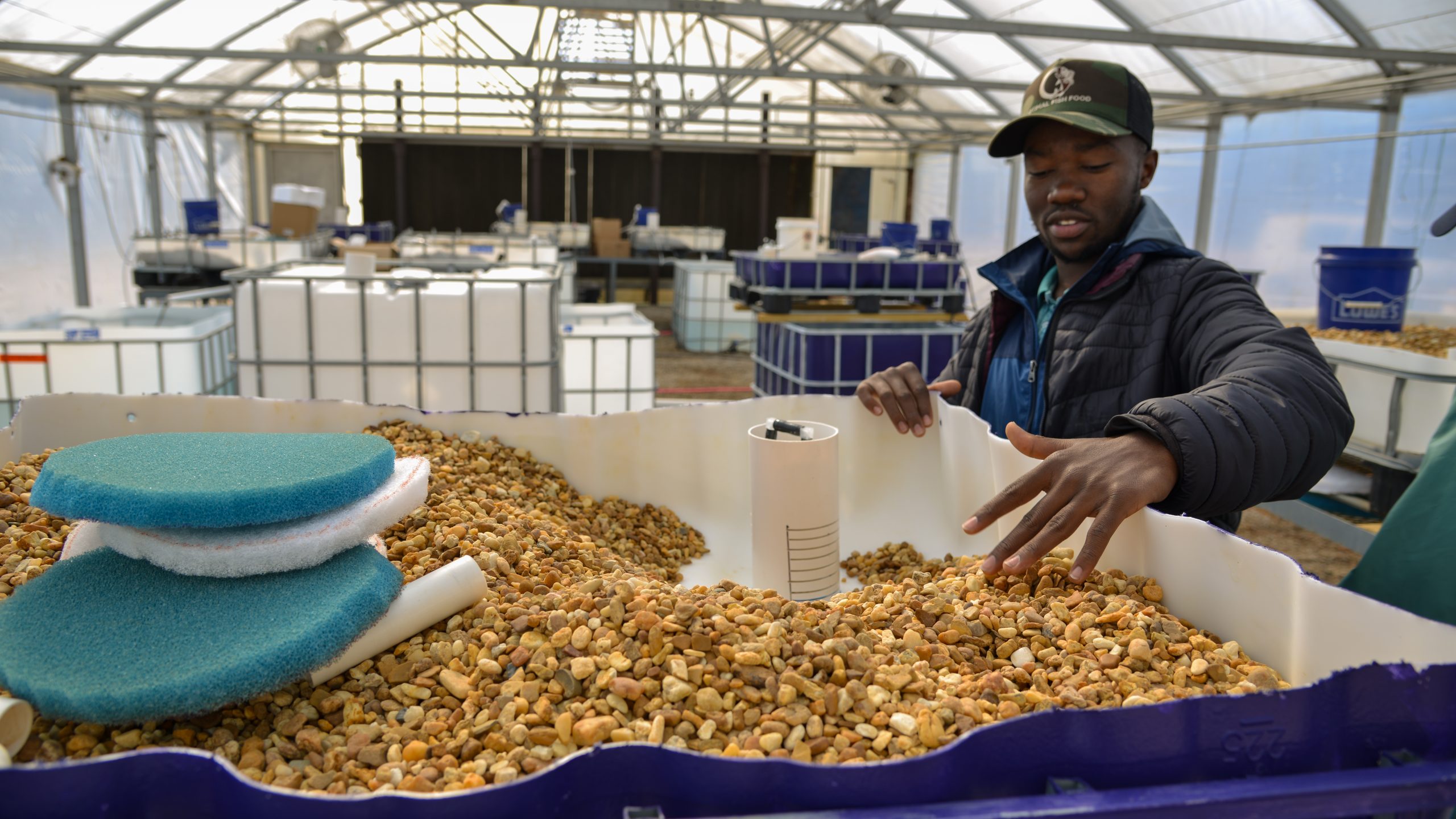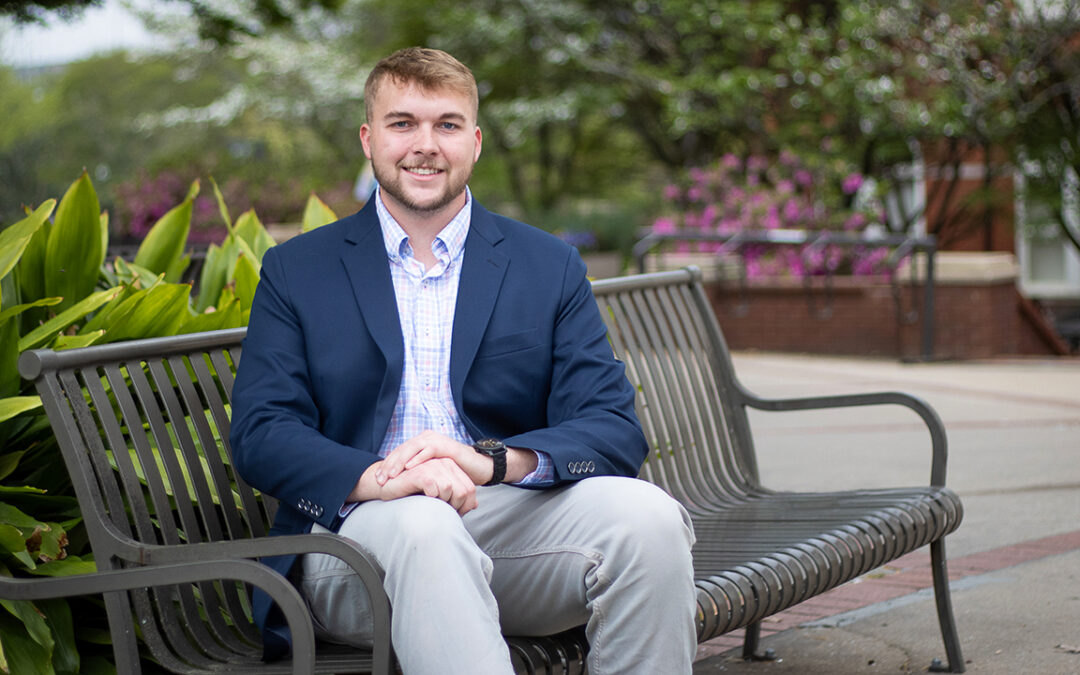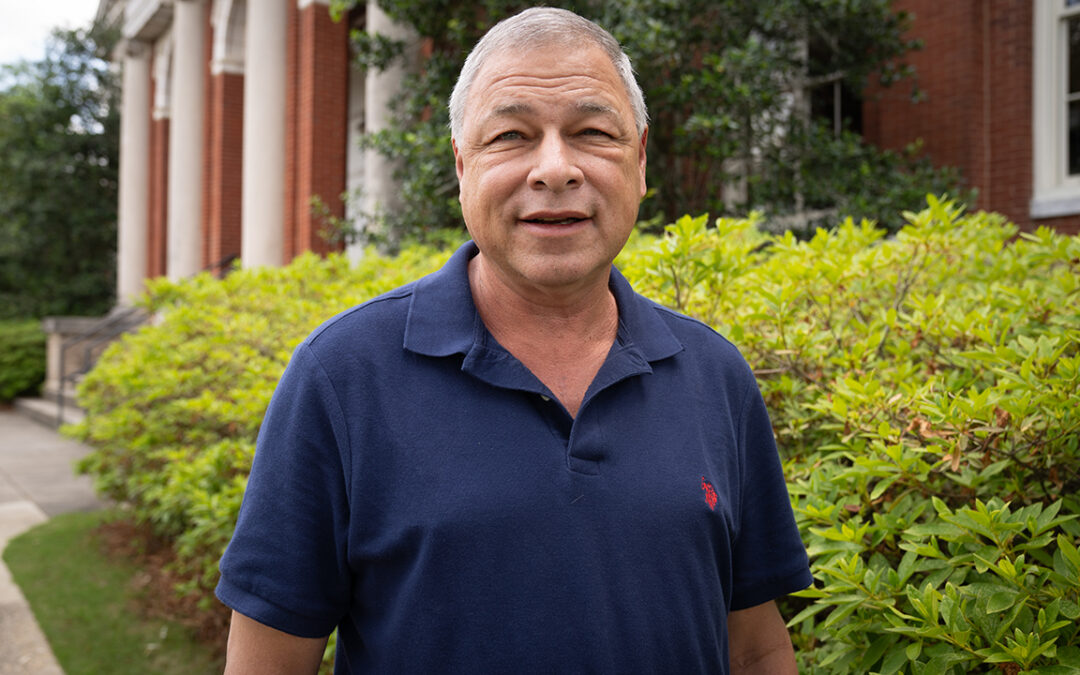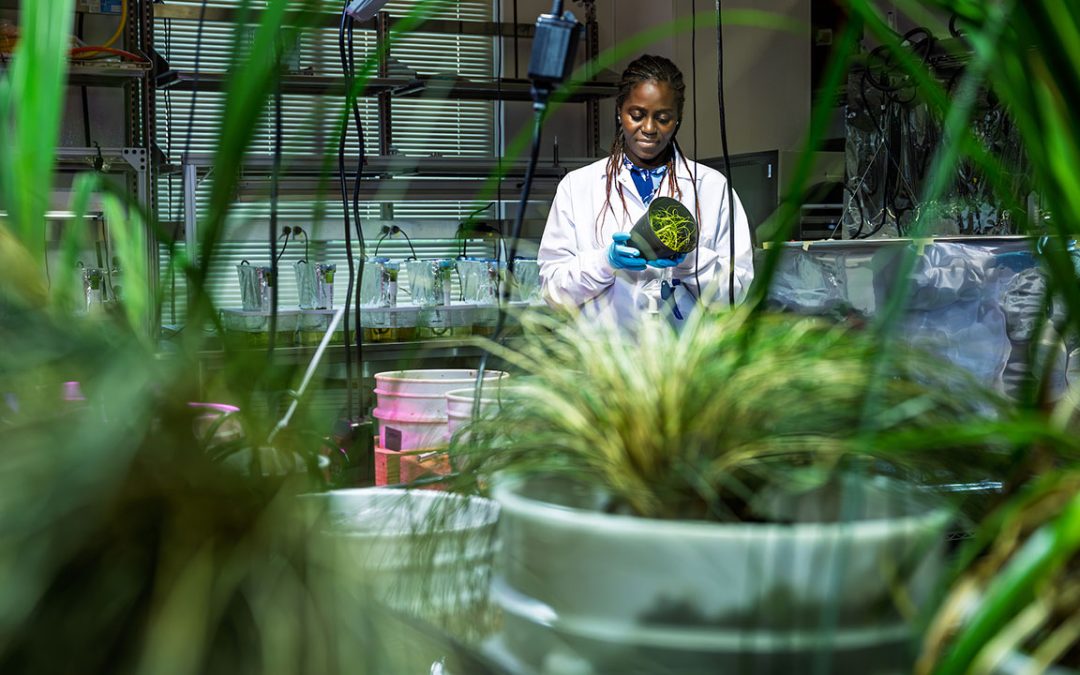It’s become a bit of a tradition.
Each summer, some of the best and brightest students at EARTH University in Costa Rica travel to Auburn to study and conduct research with the Auburn Aquaponics Project at the E.W. Shell Fisheries Center.
In 2022, those students were Xavier Rios Flores and Faustin Mukunzi. The interns spent the fall semester working on research projects in aquaponics and hydroponics that were inspired by their home countries.
“These two men were the top two candidates for this year’s intern positions,” said Associate Professor Daniel Wells. “We are pleased to work with them.”
Originally from Ecuador, Flores worked with dragon fruit cacti in both hydroponic and aquaponic systems. He was researching the best way to grow dragon fruit because of its extensive needs and growth patterns using the demonstration greenhouse at the fisheries unit.
“I proposed aquaponics and hydroponics because the plants can be set up closer, growing more plants per acre,” Flores said. “With this type of system, you can increase to around 8,000 plants per acre.”
These plants have triangular stems and are very tough plants that survive incredibly harsh conditions. Dragon fruit originates in Central America but has spread to the tropic subtropic and temperate climates.
“The plant can last between four to six years in production, so you will need a heavy-duty support system to last all those years,” Flores said.
Flores’ production design will allow the plants to be grown off the ground, which makes the growing process more productive and easier to sustain.
“There is no need to grow plants five feet apart,” Flores said, “you can raise the plants up five feet, decreasing the time to harvest.”
Because his project will require further attention after his return to Costa Rica, Flores planned to train a high school student intern that works at the fisheries center to take care of the dragon fruit as his senior project for high school.
Meanwhile, native Rwandan Mukunzi was building on the work done by Dorcas Lukwesa, the aquaponics research intern from the previous year. The goal of Lukwesa’s project was to use bamboo in aquaponics and hydroponics systems as a replacement for plastics to make the systems mobile and decrease costs.
Mukunzi worked to make these systems even more sustainable and further decrease costs so that the systems will be more accessible. He created a bamboo A-frame based off the work Lukwesa had previously done, aiming to increase the size of the frame and using more common materials so that people in both Costa Rica and back home in Africa can replicate these structures with local materials
“I wanted to do more with bamboo and aquaponics,” Mukunzi said. “Since we study in Costa Rica, bamboo is abundant, economically friendly and it’s cheaper because they have over 40 species of bamboo there.”
For materials, Mukunzi used metal, closed connectors, clamps, Nutrient Film Technique (NFT) channels, bamboo and zip ties.
“The frame with these materials costs $470, and my plan for frame three is to do the same thing with just the bamboo to see how we can reduce the costs,” he said.
EARTH University is a four-year program, running from January to December, with small breaks through the year and a longer Christmas break. The university focuses on experimental learning through field work, hands-on lab work and work experience. EARTH requires students to have an internship as a part of graduation requirements. Flores and Mukunzi conducted their internship during their junior year before going back to Costa Rica and finishing their last year of school.
There are two main EARTH campuses, one located in Guacimo, a more tropic climate closer to the Caribbean Sea, and a second campus in La Flor, a dry tropic climate. Students do work at both while at EARTH to gain experience in varying climates and settings. Approximately 81% of EARTH students come from rural communities.
Part of the curriculum at EARTH is a class where students form groups of six individuals from different countries to work with for a year on a project that consists of a business plan that they present to the university to get a loan to use for the project. Once the business plan is finalized and the project is preforming well, the group then pays back the loan from the university and keeps what profit they make for personal gain. The project that Mukunzi worked on involved pigs and Flores’ used chocolate.
Coming into the internship at Auburn, Flores and Mukunzi had some expectations for themselves: understand the basic concepts of aquaponics and how Auburn specifically does things; establish an aquaponics system with bamboo; establish an aquaponic and hydroponic system to support dragon fruit growth; and develop the training strategies and relationships to conduct research at Auburn.
Before coming to Auburn for their internships, the men also created some personal objectives or goals that they hoped to accomplish during their time at the College of Agriculture’s E.W. Shell Fisheries Center. These included: fulfill the duties and responsibilities given at work; gain more interest and experience in aquaponics; learn from research groups including graduate students and professors; and to travel and learn a different culture.
To fulfill their traveling goals, the pair traveled many places to learn about varying aquaponics systems and help teach others about them. They attended workshops and seminars, helped with Alabama Extension field days, went to an aquaponics conference in Oklahoma City; and had a booth at the Sunbelt Ag Expo, where a tabletop aquaponics system was set up to show people how it works and encourage interest.
As a part of their internship, the men had a community service component that encourages them to give back to the community as they work on their other research projects. Every Wednesday, Flores and Mukunzi traveled to the Boykin Senior Center for a few hours to play bingo, clean and anything else the staff needed. If the vegetables grown at the Fisheries Center were ripe and available for harvesting, they took fresh produce to share with the seniors.
“They actually love us,” Flores said, “after harvesting tomatoes we bring them to them, and they love us for that.”





